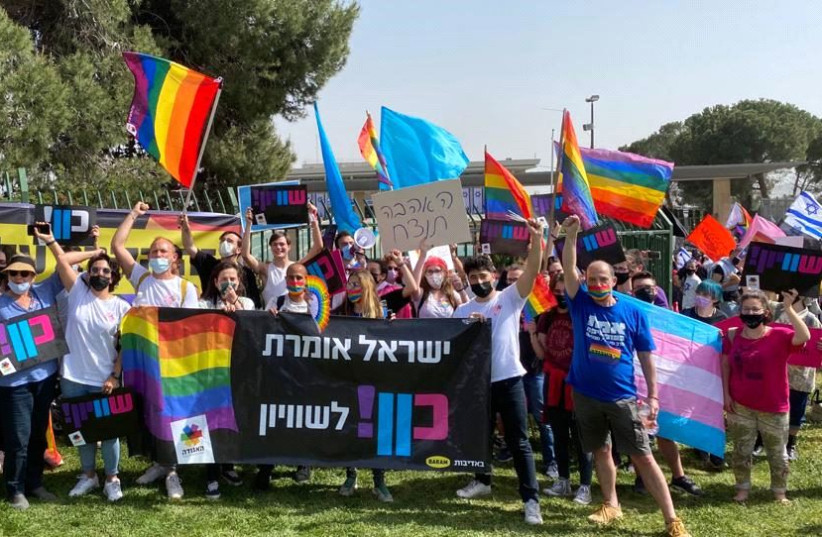It has been a quarter-century since the local LGBTQ+ community in Jerusalem has integrated and organized by founding Jerusalem’s LGBTQ+ center, the Jerusalem Open House for Pride and Tolerance (JOH). During this time Jerusalem’s municipality has had an incredibly complex relationship with the JOH, including a few legal battles. Israel’s court system has ruled again and again that the municipality has been discriminating against its residents but unfortunately, it doesn’t seem to be planning on changing this state of affairs.
It isn’t remarkable to encounter discrimination against LGBTQ+ populations. As a Jerusalemite for the past seven years, I often think that the portrayal of Jerusalem as particularly unfriendly to LGBTQ+ folk isn’t necessarily fair or exact. Truthfully, discrimination can be found in most local governments across the globe.
Even so, there is a significant difference between the existence of unfair treatment when one isn’t aware of the error of one’s way, and repetitive and obvious bigotry. It is even worse when the advancement of LGBTQ+ people is easy and beneficial, but public policy is still dictated by the standards of hate and prejudice. Even though Jerusalem’s civil society has shown growing acceptance towards the LGBTQ+ community, with large pride and tolerance marches going through the city center for the past 20 years, our representatives in the city council approach the LGBTQ+ population with dividing and conflicting rhetoric and actions.
In 2020, the Ministry for Social Equality called on local governments in Israel to apply for a very generously budgeted program, to build and strengthen LGBTQ+ communities within them. Over 70 local governments in Israel recognized this rare opportunity and signed on to this project, but Jerusalem – our largest city, our capital – wasn’t among them. Even though LGBTQ+ people in Jerusalem come from incredibly precarious circumstances and need abundant resources, their municipality chose hate over common sense. Jerusalem’s public systems would not offer support to LGBTQ+ people who live in the city, not of their own volition and not even with government funding.
For LGBTQ+ Jerusalemite activists, this decision was a slap in the face but rather than allowing this chance to slip away, they advocated for their brothers and sisters and requested that the government find a way to include them in this historic program. And so the Ministry for Social Equality partnered with the JOH to execute its groundbreaking program within Israel’s capital, targeting disadvantaged populations: Trans people, LGBTQ+ people from ultra-orthodox and Arab backgrounds, and more.

The involvement of the JOH in the providing of government services is a testament to the power of civil organizations. It shows how important civil voices and associations can be for the betterment of our society. If we limit our civil actions to participation in political systems, our voices will be swallowed by politicians who need to be reelected and their thirst for media attention.
In order to hold political discourse that has room for delicate issues of tolerance and humanity, it is crucial for those of us who believe that Jerusalem belongs to everyone to be active and loud. Elected officials can represent us in many ways, but civil society organizations can raise a joint voice in powerful channels too. At a time when politics seem less and less effective, we must consider additional and alternative forms of voicing your opinions – the Jerusalem March for Pride and Tolerance, for instance. The 2022 march will take place on Thursday, June 2.
The writer is community director at the Jerusalem Open House for Pride and Tolerance, which organizes the annual March for Pride and Tolerance in the city.
